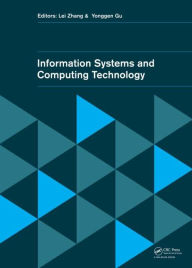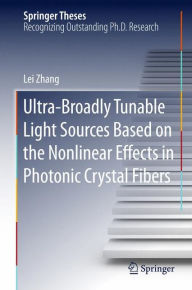Ms. Lei Zhang is a Senior Research Officer at National Research Council Canada (NRC), a Fellow of the Royal Society of Chemistry (FRSC), an adjunct Professor of various Universities, and a vice president of International Academy of Electrochemical Energy Science (IAOEES). Ms. Zhang received her first Master’s degree in Materials Chemistry (1993) from Wuhan University (China) and her second Master’s degree in Physical Chemistry (2000) from Simon Fraser University (Canada). Following her second Master’s degree, Ms. Zhang was appointed as a principle investigator at Molecular Membrane Technologies Inc., Vancouver (2001-2004). In 2004, Ms. Zhang joined NRC to help initiate the PEM Fuel Cell program. At the same time she has also conducted R&D of applied new materials and electrochemical energy technologies in the areas of supercapacitors, metal-air batteries, Lithium-ion batteries and hybrid batteries. With over 20 high-profile industrial/government projects and more than 170 publications (> 12,000 citations), Ms. Zhang’s research and scientific contributions in the areas of electrochemical energy science and technology have been internationally recognized. Ms. Zhang is a reviewer for various proposals and refereed journal papers. She is the member of the NSERC Industrial R&D Fellowships College of Reviewers, the Editorial Board Member of Electrochemical Energy Reviews (EER)-Springer Nature. She is also an active member of the Royal Society of Chemistry (RSC), the Canadian Society for Chemistry (CSC), the Canadian Society for Chemical Engineering (CSChE) and the International Academy of Electrochemical Energy Science (IAOEES).
Dr. David Pentreath Wilkinson is a Professor and Canada Research Chair (Tier 1) in the Department of Chemical and Biological Engineering at the University of British Columbia (UBC), Canada. Dr. Wilkinson’s main research interests are in electrochemical and photochemical devices, energy conversion and storage materials, and processes to create clean and sustainable energy and water. He has more than 80 issued patents and 170 refereed journal articles, and a number of edited books and book chapters, covering innovative research in these fields. He has received a number of awards for his work, and he is a fellow of several organizations including the Engineering Institute of Canada, the Canadian Academy of Engineering, the Chemical Institute of Canada, and the Royal Society of Canada
Dr. Wilkinson received his B.A.Sc. in Chemical Engineering from UBC in 1978, his Professional Engineering status in 1980, and his PhD in Physical Chemistry from the University of Ottawa in 1987, where his graduate work was done with Professor Brian Conway in electrochemistry. Prior to joining the university in 2004 Dr. Wilkinson had more than 20 years of industrial experience in the areas of fuel cells and advanced lithium batteries. He has held a variety of leadership positions including being Associate Department Head, Executive Director of the UBC Clean Energy Research Center, Principal Research Officer and Senior Advisor with the National Research Council of Canada in Vancouver, Director and Vice President of Research and Development at Ballard Power Systems, and Section Leader for Chemistry at Moli Energy (now E-One Moli Energy). Dr. Wilkinson was an important part of the team that developed the first commercial rechargeable Lithium AA battery, and he is considered a pioneer in the development of the modern commercial PEM fuel cell. He is a co-founder and technical advisor for Mangrove Water Technologies, a company which was spun out from his research program with his graduate students Dr. Wilkinson is a board member of several organizations and is a regular keynote or plenary speaker at international conferences.
Dr. Zhongwei Chen is Professor & Canada Research Chair (tier 1) in Advanced Materials for Clean Energy, Fellow of the Canadian Academy of Engineering, Director of Collaborative Graduate Program in Nanotechnology, Director of Applied Nanomaterials & Clean Energy Laboratory at University of Waterloo, Associate Editor of ACS Applied Materials & Interfaces, and the Founder/Associate-Chairman of The International Academy of Electrochemical Energy Science (IAOEES). His current research interests are in the development of advanced energy materials for metal-air batteries, lithium-ion batteries and fuel cells. He received his Ph.D. in Chemical and Environmental Engineering from the University of California - Riverside. Prior to joining the faculty at Waterloo in 2008, he was focusing on the advanced catalysts research by the Chancellor's Dissertation Fellowship in the Los Alamos National Laboratory (LANL) at New Mexico. His current research is on advanced materials for fuel cells, batteries, and sensors. He has published 2 book, 8 book chapters and more than 200 peer reviewed journal articles including Nature Nanotechnology, Nature Communications, JACS, Angewandte Chemie, Advanced Materials, Advanced Energy Materials, Energy & Environmental Science, Nano Letters and ACS Nano. These publications have earned him to date over 13,000 citations with H-index 54 (Google Scholar). He is also listed as inventor on 18 US/international patents, with three start-up companies in USA and Canada. Dr. Chen also serves as an editorial board member for peer-reviewed journals including Scientific Reports (Nature Publishing), and the Vice President of the International Academy of Electrochemical Energy Science (IAOEES). In 2107, he was elected to be a Fellow of the Canadian Academy of Engineering, recognizing his outstanding abilities. He was also recipient of the 2016 E.W.R Steacie Memorial Fellowship and the member of the Royal Society of Canada’s College of New Scholars, Artists and Scientists in 2016, which followed shortly upon several other prestigious honors, including the Ontario Early Researcher Award, an NSERC Discovery Supplement Award, the Distinguished Performance and Research Excellence Awards from the University of Waterloo.
Dr. Jiujun Zhang is a Professor, Dean of the College of Sciences and Dean of Institute for Sustainable Energy at Shanghai University. He is a former Principal Research Officer at National Research Council of Canada (NRC), Fellow Member of Academy of Science of the Royal Society of Canada (FRSC-CA), Fellow of International Society of Electrochemistry (FISE), Fellow Member of the Engineering Institute of Canada (FEIC), Fellow Member of the Canadian Academy of Engineering (FCAE), Fellow of the Royal Society of Chemistry (FRSC-UK), and the Founder/Chairman of The International Academy of Electrochemical Energy Science (IAOEES). In 2014, 2015, 2016 and 2017, Dr. Zhang was ranked as the top 1% of Highly Cited Researchers in the world, and has also listed as one of the "3000 World's Most Influential Scientific Minds" by Thomson Reuters since 2014.
The technical expertise areas of Dr. Zhang are Electrochemistry, Photoelectrochemistry, Spectroelectrochemistry, Electrocatalysis, Fuel cells (PEMFC, SOFC, and DMFC), Batteries, and Supercapacitors. Dr. Zhang received his B.S. and M.Sc. in Electrochemistry from Peking University in 1982 and 1985, respectively, and his Ph.D. in Electrochemistry from Wuhan University in 1988. Starting in 1990, he carried out three terms of postdoctoral research at the California Institute of Technology, York University, and the University of British Columbia. Dr. Zhang holds more than 14 adjunct professorships, including one at the University of Waterloo, one at the University of British Columbia and one at Peking University. Up to now, Dr. Zhang has more than 450 publications with approximately 26000 citations, including 270 refereed journal papers, 22 edited /co-authored books, 43 book chapters, 150 conference keynotes and invited oral presentations, as well as over 16 US/EU/WO/JP/CA patents, and produced in excess of 90 industrial technical reports. Dr. Zhang serves as the Editor-in-Chief of Electrochemical Energy Reviews (Springer Nature), and editor /editorial board member for several international journals as well as Editor for book series (Electrochemical Energy Storage and Conversion, CRC press). Dr. Zhang is also an active member of The Electrochemical Society ECS), the International Society of Electrochemistry (ISE), and the American Chemical Society (ACS, as well as the Canadian Institute of Chemistry (CIC).
Less









